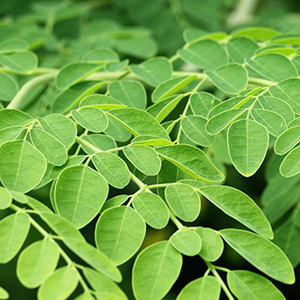Moringa leaves, extracted from the Moringa oleifera tree, are renowned for their abundant nutrient profile, which confers a multitude of health advantages. Exploring these benefits, it becomes evident that they span various aspects of human well-being.
Regarding skin and hair health, scholarly investigations propose that moringa seed oil possesses the capacity to expedite the healing process of skin wounds by mitigating oxidative stress. Moreover, preliminary evidence suggests potential benefits for hair vitality and strength.
Addressing edema, a condition characterized by the accumulation of fluid in bodily tissues due to inflammatory responses, research indicates that moringa seed oil exhibits promising anti-inflammatory properties. Experimental studies conducted on mice afflicted with ear edema illustrate its potential therapeutic efficacy in ameliorating inflammation associated with this condition.
Concerning liver health, dietary incorporation of moringa demonstrates a protective effect against nonalcoholic fatty liver disease. Experimental studies involving guinea pigs subjected to a diet enriched with moringa leaves reveal reduced levels of cholesterol and triglycerides, accompanied by diminished liver inflammation, thus highlighting its hepatoprotective potential.
In the realm of oncology, the bioactive constituents present in moringa, such as niazimicin, exhibit inhibitory effects on the proliferation of cancerous cells. Investigations into extracts derived from various parts of the moringa plant indicate promising avenues for the development of therapeutic interventions targeting cancers of diverse origins, including breast, liver, and colorectal malignancies.
Concerning digestive wellness, moringa extracts manifest notable benefits, encompassing the promotion of gastrointestinal health and the potential mitigation of colorectal cancer risk. Additionally, the laxative properties of moringa leaves render them a viable option for alleviating symptoms of constipation. Furthermore, empirical evidence suggests a significant reduction in gastric acidity following moringa consumption, thus implying a potential prophylactic role in preventing peptic ulcer formation. The inherent antibiotic and antibacterial properties of moringa further fortify its capacity to combat infections by impeding the proliferation of pathogenic microorganisms.
Finally, the nutrient-rich composition of moringa leaves underscores their status as a dietary powerhouse. Boasting an array of essential vitamins—including but not limited to vitamins A, B1 (thiamine), B2 (riboflavin), B3 (niacin), and C (ascorbic acid)—alongside vital minerals such as calcium, potassium, iron, magnesium, and phosphorus, moringa emerges as a formidable ally in fortifying nutritional intake. Notably, its low fat content and absence of harmful cholesterol render it an ideal component of a health-conscious diet.
